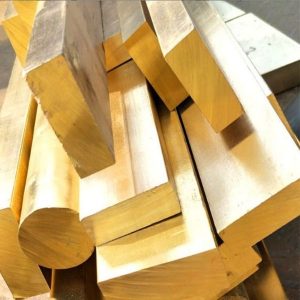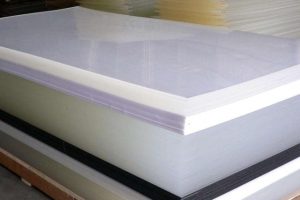Search
In custom manufacturing, selecting the right material is crucial for the performance, durability, and overall quality of the final product. The material you choose impacts not only the function but also the manufacturing process, cost, and delivery time. Whether you're designing a new prototype or producing a small batch of parts, understanding the various factors that influence material selection can help ensure the best outcome for your project.
1. Material Properties and Functionality
Each material has unique properties that make it suitable for specific applications. These include strength, flexibility, weight, thermal stability, electrical conductivity, and corrosion resistance. Before choosing a material, it's important to understand the functional requirements of your product. For example, if you're creating a part that will be exposed to high temperatures or corrosive environments, materials like stainless steel or certain high-temperature alloys may be necessary.
Key Factors to Consider:
Strength-to-weight ratio
Thermal conductivity and stability
Electrical properties
Resistance to wear, corrosion, or fatigue

2. Compatibility with Manufacturing Process
Different materials interact with manufacturing processes in distinct ways. Whether you're using CNC machining, injection molding, 3D printing, or other techniques, certain materials are more compatible with specific methods. For instance, some materials are better suited for CNC machining due to their machinability, while others might be ideal for injection molding due to their flow characteristics.
For CNC Machining: Materials like aluminum, brass, and steel are often used because of their ease of machining and precise results.
For Injection Molding: Thermoplastics such as ABS, polycarbonate, and polypropylene are frequently chosen for their excellent flow properties and ease of mass production.
For 3D Printing: Materials such as PLA, nylon, and TPU are popular due to their versatility and ease of use in additive manufacturing.

3. Cost and Budget Constraints
Material cost is a significant factor in custom manufacturing, particularly when producing in small quantities. While high-performance materials might offer superior properties, they often come at a premium price. It's essential to balance the material’s performance requirements with budget constraints. In some cases, a less expensive material may provide adequate performance, reducing overall production costs.
Factors to Evaluate:
Raw material cost
Processing costs (cutting, molding, finishing)
Waste reduction and material efficiency
4. Lead Time and Availability
The availability of materials can greatly impact project timelines. Some materials are readily available, while others might require special sourcing, longer lead times, or custom orders. If you need a fast turnaround, it's important to consider materials that are easily accessible from suppliers or have shorter delivery times.
Things to Keep in Mind:
Local vs. international suppliers
Lead times for sourcing raw materials
Custom or specialty material availability
5. Sustainability and Environmental Impact
With growing emphasis on sustainability, it’s essential to consider the environmental impact of the materials you choose. Some materials are recyclable or biodegradable, while others may be harmful to the environment during production or disposal. Choosing eco-friendly materials not only helps reduce your carbon footprint but can also align your products with customer values and regulatory standards.
Sustainable Options to Consider:
Recycled plastics and metals
Biodegradable polymers
Low-emission manufacturing processes
6. Compliance and Standards
In many industries, compliance with regulations and industry standards is mandatory. Whether you're manufacturing parts for medical devices, aerospace, or automotive industries, specific materials must meet established guidelines for safety, quality, and performance. Make sure the materials you choose are compatible with the required certifications and industry standards.
Key Standards to Check:
ISO certification
FDA regulations (for medical devices)
ASTM standards (for metals and polymers)
Choosing the right material in custom manufacturing is not a decision to be taken lightly. It involves evaluating several factors, including material properties, manufacturing compatibility, cost, lead time, environmental impact, and industry standards. By considering these key aspects, you can select a material that best meets your project’s requirements, ensures high-quality production, and minimizes costs. Partnering with an experienced manufacturer who understands the nuances of material selection can help you achieve the best possible results.